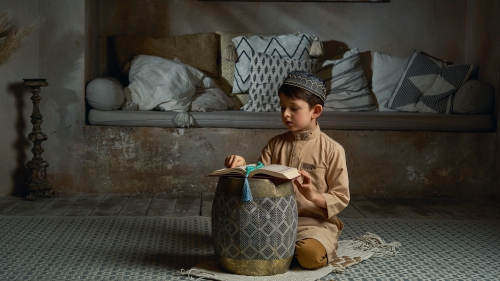Cheikh Diarra: Tackling Development Issues Through Science
Monday, at the first annual World Conference on Science being held in Budapest, Hungary, Malian-born U.S. astrophysicist Dr. Cheikh Modibo Diarra, called for a scientific renaissance for developing regions of the world, Africa in particular. Addressing the international assembly of some 2,000 scientists and government officials, Diarra called on the developing world to pool its resources "to find efficient and innovative solutions" to use science to promote world peace and development, according to a June 28 UNESCO Press report.
Convinced of the link between scientific development and regional prosperity, representatives from several African countries Monday made a joint proposal to use some of the $70 billion in debt relief allotted recently to poor countries by the G8, to create a science fund. Cameroonian Minister of Science and Technology Henri Hogbe Nlend said the proposal was aimed at equalizing technological inequalities: ''The idea that some countries are producers of science while others are consumers, cannot be allowed to continue into the next century," as quoted by the Pan-African News Agency (PANA)."
During his speech on Monday, Diarra echoed similar statements in proposing the setting up of regional centers for scientific research in Africa in order to help young scientists who are currently being handicapped by lack of opportunity. Diarra also blamed African governments for failing to promote higher education and urged them to take initiative in promoting science and education, according to a June 29 BBC report.
Diarra, who works for NASA and figures prominently in NASA's Mars exploration program, was appointed UNESCO's good-will ambassador to Africa in 1998. He is the first African, the first American citizen and the first scientist to be granted the post. In a June 26, 1998 NASA press release, Diarra said that he is committed to using his UNESCO appointment in order to "raise public awareness of the importance of science and mathematics to global peace and technological advancement."
Diarra's emergence as an internationally renowned scientist of both African descent and Islamic upbringing comes at a time when developing countries, most of which are African and/or Muslim, are faced with increasing pressures to compete with the industrialized and technologically advanced Western nations. Diarra is, of course, not a fluke of nature. He represents both the legacy of African and Muslim scholarship and the potential of millions of people in the developing world, long marginalized by economic exploitation, crippling wars and general lack of opportunity.
The fabled city of Timbuktu in central Mali, an oasis of scholarship in medieval times that far outdistanced its European counterparts in resources and scholars, attests to the legacy of African Muslim scholarship. Before the advent of the modern era, Muslims were some of the largest world contributors to the sciences, most notably astronomy.
At a 1998 conference in Malaysia, for which Diarra gave the opening address, Malaysian officials announced their intention to launch a space program in keeping with the tradition of Islamic scholarship in this field. In an official statement about the conference, carried by the Straits Times on October 10, 1998, Dr. Abu Bakar Abdul Majeed wrote, "Once astronomy, the enabling science of space exploration, flourished in the Muslim world. In this modern age too, it is incumbent upon Muslims to be involved in space exploration."
Amid the modern poverty and subordination of Africa and the Muslim world, Diarra also exemplifies the ability of disadvantaged individuals to excel in the highest echelons of modern scholarship, while remaining concerned for the countless others that did not receive such a rare opportunity. Diarra revealed in a web-chat in February 1998 that, "I will move back to West Africa, God willing," and has often condemned the "brain-drain" of native scholars to the West because of lack of opportunity.
Diarra's achievements in the field of science and his recent call for a concerted effort towards scientific development in Africa represent the fulfillment both of African/Muslim tradition and the need for scholars from the developing world to give back to their native countries. Diarra's address to the World Conference on Science was sensitive to a phenomenon of which people in developing countries are painfully aware. As an April 13 article in Mali's Les Echos bemoans, "Mali is a country which has a pressing need for technical competence and which suffers from a serious blow from the migration of its general population, and of its intellectuals in particular." By taking substantive steps to promote the educational renewal of Africa, Diarra could prove a rare bridge between scholarship and societal responsibility, a bridge that is badly needed in the developing world.
Zakariya Wright is a staff writer at iviews.com

















